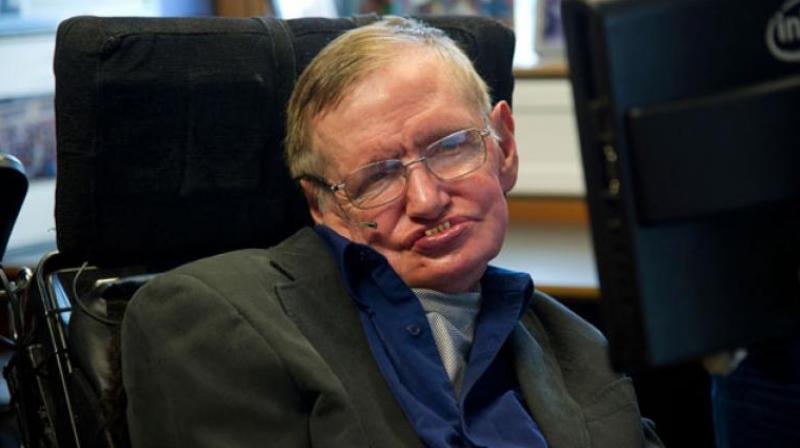Renowned British scientist Stephen Hawking passes away at 76
Stephen Hawking contracted motor neurone disease in 1963 and was given two years to live.

London: World famous British scientist Stephen Hawking, modern cosmology's brightest star known for his groundbreaking work with black holes and relativity, died Wednesday at his home in Cambridge aged 76.
Hawking's children, Lucy, Robert and Tim said in a statement: "We are deeply saddened that our beloved father passed away today. "He was a great scientist and an extraordinary man whose work and legacy will live on for many years. His courage and persistence with his brilliance and humour inspired people across the world," the statement said.
"He once said, 'It would not be much of a universe if it wasn't home to the people you love.' We will miss him for ever," it said.
Hawking contracted motor neurone disease in 1963 and was given two years to live but he went on to study at Cambridge and became one of the most brilliant theoretical physicists since Albert Einstein.
Also Read: Stephen Hawking's demise anguishing: PM Modi condoles death of cosmologist​
Hawking's first major breakthrough came in 1970, when he and Roger Penrose applied the mathematics of black holes to the entire universe and showed that a singularity, a region of infinite curvature in spacetime, lay in our distant past: the point from which came the big bang.
Hawking's seminal contributions continued through the 1980s.
The theory of cosmic inflation holds that the fledgling universe went through a period of terrific expansion.
In 1982, Hawking was among the first to show how quantum fluctuations – tiny variations in the distribution of matter – might give rise through inflation to the spread of galaxies in the universe. But it was A Brief History of Time that rocketed Hawking to stardom.
Published for the first time in 1988, the title made the Guinness Book of Records after it stayed on the Sunday Times bestsellers list for an unprecedented 237 weeks. It sold 10 million copies and was translated into 40 different languages.
Hawking won the Albert Einstein Award, the Wolf Prize, the Copley Medal, and the Fundamental Physics Prize. The Nobel prize, however, eluded him.
The world famous physicist and cosmologist was the subject of the 2014 film 'The Theory Of Everything', which starred Eddie Redmayne and Felicity Jones.

